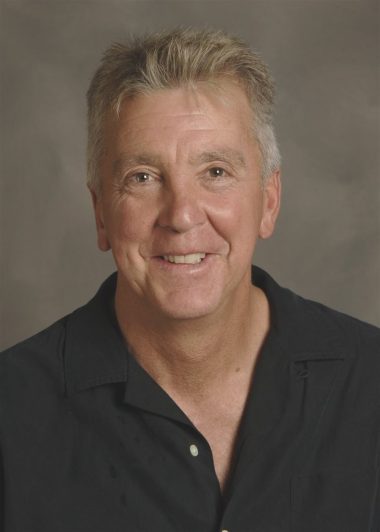During World War Two, many captured German soldiers were transferred overseas to prison camps in the United States. After discovering an unlikely connection to one of these POWs, Tom Nelson, an associate professor of communications, began work on "Prisoners of Plenty," a documentary that tells the Germans' stories due out this year.

While teaching in Germany during the first half of the 90s, Nelson met Michael Fungeling, whose father was a German prisoner of war at a camp in Concordia. The former television reporter established a relationship with Fungeling family, even inviting them to spend Thanksgiving in North Carolina years later.
When listening to Michael’s father, Hans-Gerd Fungeling, speak about his time as a POW, Nelson was struck by how positively he recalled the experience. “It’s surprising how many of these prisoners enjoyed their experience,” he said. “I think it’s interesting that everyone speaks about it in a positive, affectionate way.”
In June 2006, Nelson and his son, Nick, were driving to Colorado when Fuengeling called to wish him a happy birthday. Not only did Nelson and his son happen to be in Kansas, they learned they were only 40 miles from the former Concordia prison camp. The two decided a detour was in order.
The camp operated from 1943 to 1945 and held more than 4,000 prisoners. It is now primarily a cornfield within the small town, though its signature guard tower remains. Despite a visit that included getting his car stuck in mud overnight, Nelson became captivated by the history around him and decided it was a story that needed to be told.
Nelson would soon travel to Concordia to conduct interviews and expand his knowledge on the topic, while his wife, Joan, went to Germany to do the same. Nelson was impressed by the willingness of people to divulge information.
“I was shocked by all the goodwill,” Nelson said. “Everybody was cooperative and willing to talk and share memorabilia. A lot of times when people have previously written about a topic, they are tight with their info. However, in this case I was touched and impressed by the generosity to share information.”
With each interview, Nelson came closer to understanding what the Concordia prisoners endured. While prisoners were mostly positive in their recollections, he said, there were dark moments along the way. Interview subjects shared stories of a prisoner being shot in the head after disregarding orders, and of the violence that erupted between pro-Nazi prisoners and those that opposed the regime.
Most interviewees said they were typically bored, yet they were able to pass time by taking advantage of university studies taught by the most educated POWs. “One POW said it was the only time (up until) and since then when he had time to just think,” Nelson said. “He loved it.”
Many POWs opted to spend time working on local farms for pay. Nelson a story where a farmer’s wife invited prisoners to eat lunch in her home, an uncommon gesture at the time. One of the POWs saw a photograph of a young man in uniform and asked if it was her son. The woman responded in the affirmative and became emotional, to which one of the German POWs hugged and consoled her.
When the war ended, the men traveled home by boat. Many of them were first sent to France, Nelson said, where they were forced to labor for one to two years rebuilding French industry. Several POWs that Nelson spoke with were very bitter about that experience.
“Other POWs had better luck being sent home to German via more hospitable routes and directly to their families,” Nelson said. “Several went on to be movers and shakers in German society.”
A common theme among the German POWs interviewed was that Americans were “korrekt” to them. In German, the word korrekt is similar to correct, but with a different connotation. They maintain that their situations were “korrekt” because Americans followed the protocols of the Geneva Convention – not because the Americans lavished unexpected kindness on them in a time of war.
Nelson came to Elon in 1996, after previously teaching at West Georgia College and in the European Division of University of Maryland (Heidelberg, Germany). He holds a bachelor’s degree from Boston College and a master’s degree from Syracuse University.
Nelson spent seven years as reporter and news anchor at television stations in North Dakota, Pennsylvania, Maine, California and Texas and as press secretary to a U.S. House candidate in Iowa. He served as a visiting professor at Concordia International University of Estonia in 2001 and has led a European study abroad course focusing on the history of World War One.
– Robert Hoppey ‘09


